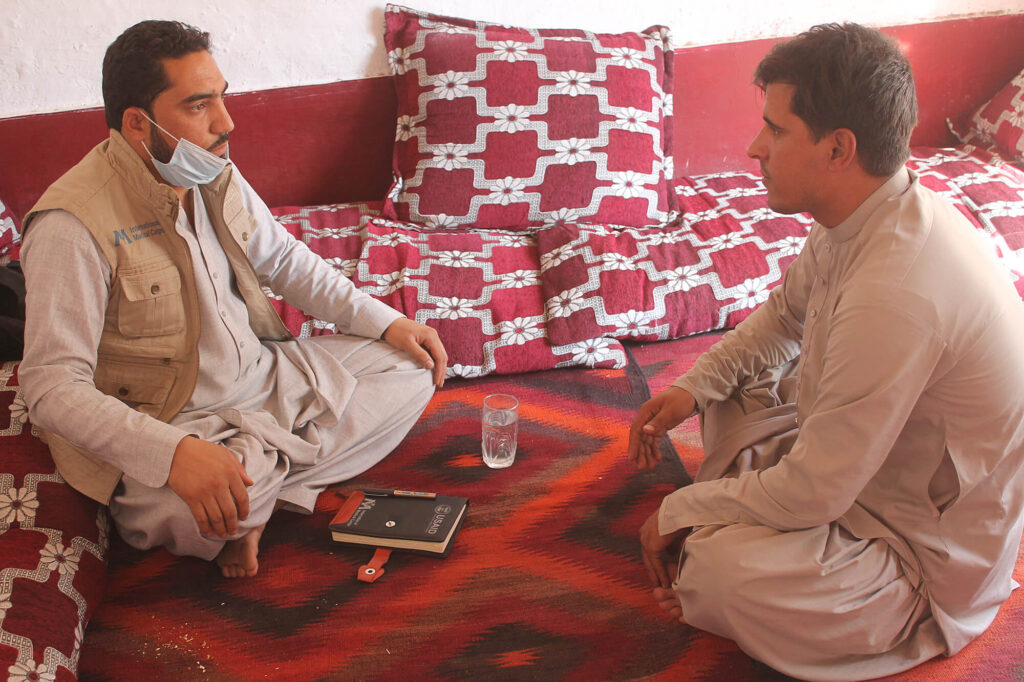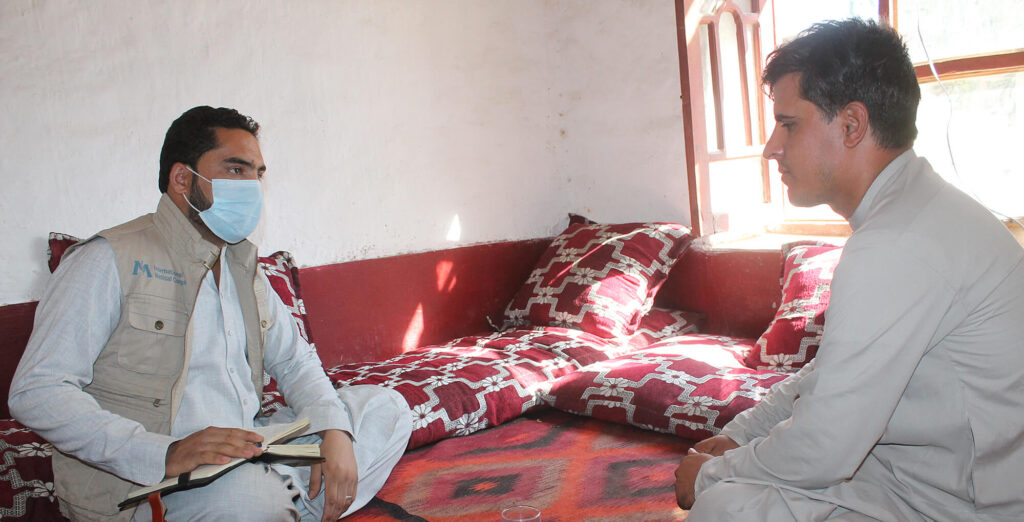In an emergency, mental health needs often increase: new issues arise, and pre-existing conditions are exacerbated by traumatic events like conflict. Though people with mental health conditions constitute a particularly vulnerable group, they are often neglected. After recently conducting a mental health needs assessment in Afghanistan, we found that COVID-19, poverty, unemployment, insecurity, conflict, economic problems, disunity, oppression, theft, bribery and use of substances such as illegal drugs are some of the main psychosocial issues in the country.
Ahmad Shah is a young man who suffered from mental health problems and sought help from our mental health team. Ahmad endured stress and disappointment when he and his family, who were Afghan migrants living in Pakistan, were forced to leave that country. After decades of conflict in Afghanistan, Ahmad’s family was reluctant to return. They are originally from Nangarhar province, near Tora Bora, where intense fighting went on for years. Due to this instability, Ahmad’s father did not want to resettle in their old village. He decided they would relocate to one of the informal settlements near Nangarhar city. Ahmad was in primary school at the time.
Despite having trouble adjusting to his new life, Ahmad graduated from high school and enrolled in university. Unfortunately, due to his father’s declining health, Ahmad left university during his fourth semester. His family was relying on him, and he felt obligated to seek work. Ahmad is his father’s first son, and therefore, like his father, he is expected to provide for their family.

When Ahmad left university, he felt discouraged, worthless and downhearted. He was immensely depressed and unmotivated.
“I was depressed and would get upset at very minor issues, which made my life full of trouble, and I lost control,” explains Ahmad.
Our volunteer community focal point person in Surkhroad district referred him to one of our mental health team. After participating in a series of counseling sessions, Ahmad began feeling better and began thinking about his future and responsibilities differently and transformed his life.
“I am more connected with my parents, and now I do regular work,” says Ahmad. “I received a small contract from local landlords, and I’m building homes for people. And I just got engaged a few days ago and plan to get married soon. I hope to have a shining life!
“I thank the International Medical Corps doctor who supported me and showed me different approaches of thinking about my new life, and taught me positive coping skills such as to avoid drugs. I need to work, take responsibility for my problems and stand on my own feet, and I should not give up!”
